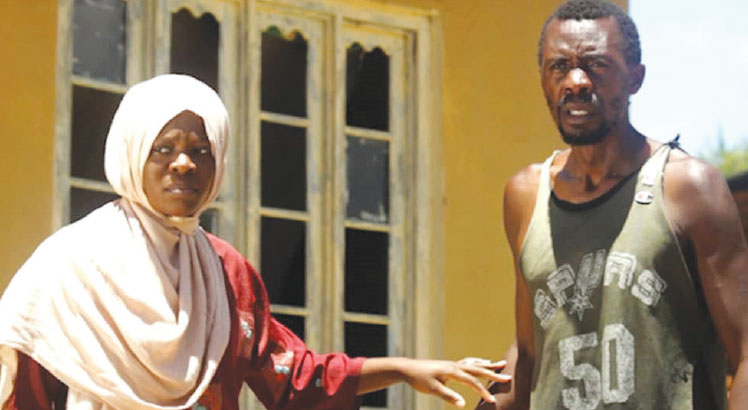Joyah speaks on movie distribution, piracy
First Dawn Arts film director Charles Shemu Joyah is one of the local filmmakers appreciated by many Malawians. From the time he released Seasons of a Life to his latest offering The Road to Sunrise, it is a fact his production is usually top notch.
However, just like it is with many of the local movies, availability of his movies is limited. One can safely say Joyah’s only movies are Seasons of a Life and The Last Fishing Boat.
But Joyah says the decision to not release his movies immediately is done is due to piracy and career development, among others.

“Most Malawians who watched my movies watched the pirated version. That is why I delay releasing my films. This happened with The Last Fishing Boat. Unfortunately, Malawians want things for free, without realising that it takes money and effort to produce a good film,” he told Chill on Monday.
Joyah said he also holds on to his production for a while because he wants to take them to international film festivals.
“Most international film festivals do not take films that are already in circulation,” he said.
Joyah further explained that for his last film The Road to Sunrise, he got an international distribution company in France to handle it.
“Distribution is easier if the film is not already in circulation,” he added.
The local film maker said he will consider releasing his content early if YouTube and Facebook are monetised in Malawi.
He said: “Monetisation is the game-changer in the whole equation. Of course, social media platforms do not pay that much unless you have many views, but at least that compensates for the efforts. Still I would most likely not put my fresh film on YouTube unless I am sure that it will have many views.”
Commenting on the local movie School Days that recently got uploaded on YouTube, Joyah said it is encouraging that Malawians viewed it.
“School Days is doing very well, so that is encouraging to most Malawian film makers. If monetisation comes, YouTube will be a good alternative for distributing our films,” he said.
Joyah disclosed that he has put his films on Showmax and Zuku television bouquet.
“Recently an airliner bought two of my films for inflight screening,” he said.
The filmmaker said though Netflix and Showmax are good alternatives, it has not been easy for him to get his films on the platforms.
“I was in Durban [ in South Africa] last year, Netflix said their algorithm is still not indicating that they should take Malawian films. This is because of the poor number of subscribers from Malawi,” he said, adding that their concentration is Nigeria, South Africa and Kenya where they have millions of subscribers.
He claimed that Showmax suspended taking Malawian films at a time when he was negotiating to put The Road to Sunrise on it.
“Many Malawians registered for the 14-day trial and then stopped after the trial period. However, I hope that Netflix will change soon,” he said.
Commenting on the matter, Filmmakers Association of Malawi president Gift Sukez Sukali said there is a need to monetise online platforms such as YouTube and Facebook so that film makers can get some revenue.
“Worldwide, producers make money through theatres. In Malawi we do not have any cinemas because we lack the cinema culture,” he said.
Sukali said the best option in Malawi is YouTube being monetised.
“There is hope that it will happen soon, otherwise one needs a solid game plan before just putting it out there,” he said.
On the Fatsani movie which he produced, Sukali said as a production team, they have their own ways of collecting revenue.
“We had it on DStv’s Zambezi channel. We also had it on Showmax. But we are not putting it out on YouTube until we are assured that we will be paid for our views,” he said.
The local industry has of late been making inroads in terms of quality and storylines, but the outcry has notably been about access to the productions with many only accessible during premieres.





